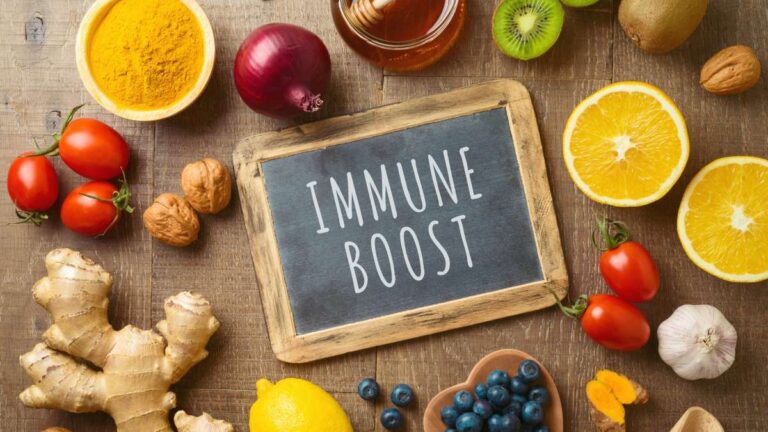Hormonal imbalances can wreak havoc on your body. They can leave you feeling fatigued, bloated, and with an insatiable appetite. Fortunately, there are ways to balance hormones through nutrition.
If you’ve ever looked into how nutrition can help with hormonal balance, you might be left confused and overwhelmed by the different advice out there. Some sources will tell you that eating more of one particular food is a great way to boost the production of another hormone. Others will say that some foods have properties that directly counteract other hormones.
Fortunately, it’s not quite as complicated as all that! We’ll keep this as simple as possible. Many foods help to balance our hormones naturally – especially when we need them most (usually around menstruation).
Yes, it’s possible. Hormones are powerful messengers in the body. They send instructions to different parts of the body at different times, telling them to activate or slow down. When our hormones are out of balance, it can hurt our health and wellbeing.
What is a hormone

The hormone is a chemical messenger that is released by cells in the body. Hormones act on other cells and tissues to alter their function. They are essential for life because they regulate many important bodily functions, such as growth, metabolism, reproduction, and the immune system.
Type of hormone:
1) Estrogen
Estrogen is a female hormone that is released by the ovaries and is responsible for things like bone growth, tissue repair, and muscle development.
2) Testosterone
Testosterone is a male hormone that helps develop male characteristics (like facial hair, deep voices, and muscle mass). It also helps to regulate the production of sperm.
3) A growth hormone
A growth hormone is a hormone that is released by the pituitary gland. It helps regulate bone growth and tissue repair. also helps regulate the body’s metabolism.
4) Cortisol
Cortisol is a stress hormone produced primarily by your adrenal glands when they’re under stress or being overworked (like during exercise). Cortisol helps us respond to stressful situations like illness or injury and plays an important role in regulating our immune system – it helps us fight off infections – so if we don’t have enough cortisol being produced it can leave us more susceptible to illnesses!
But it can also be harmful if we overuse it! It can cause weight gain, fatigue, and feeling down about yourself.
How your hormonal balance can be disturbed
1) Too much stress
Stress can cause your body to produce too much cortisol, which can lead to weight gain and fatigue. Excess cortisol also increases appetite and suppresses the immune system, making you more susceptible to illness.
2) Too little sleep

Sleep is important because it allows your body to repair itself and restore its hormones. When you don’t get enough sleep, your body doesn’t have time to properly repair itself. It also reduces the amount of insulin your pancreas produces, which means that less glucose (sugar) is being taken up by cells for energy. This can make you feel tired or hungry all day long.
3) Smoking and/or drinking too much alcohol
Smoking disrupts hormone balance in several ways: it increases blood pressure and heart rate, which can increase the risk of heart disease; it decreases levels of sex hormones like testosterone, and it decreases levels of growth hormones in children (which are crucial for brain development). If you are looking for ways on how you can stop this habit then you might want to try using this nicotine lozenges from Nioo labs. It has been in the nicotine replacement therapy market for decades and has proven to work for many people in quitting smoking. Drinking alcohol has similar effects on women as smoking does on men – especially when they drink too much!
4) Not getting enough exercise
Exercise helps to regulate hormones like cortisol, which is a stress hormone. It also helps to increase levels of sex hormones like testosterone and estrogen.
You should visit the doctor If you’ve been having trouble sleeping or if you’re feeling very stressed, you should go to see your doctor. Your doctor will be able to tell whether you have a hormone imbalance and may be able to recommend the right treatment. also if your symptoms don’t improve, or if they get worse, you should see your doctor.
According to Medzone.clinic about 40% of adults have poor hormonal levels, especially such as HGH, IGF-1, Insulin, and Cortisol. Also, for you to start this therapy you need to get a prescription and make a blood test.
Nutritional balance:
- Thyroid hormones with iodine whereby the thyroid gland is stimulated, which is important for energy and metabolism.
- cortisol with magnesium for energy (and for stress)
- Growth Hormone Arginine whereby the pituitary gland is stimulated with arginine which is an amino acid.
- Zinc for Testosterone to increase muscle mass, strength and energy.
- filtered water to reduce stress, and restore levels to normal.
- Fatty fish for estrogen to balance the levels of progesterone.
Conclusion

Hormonal imbalance can be difficult to manage. The fluctuations that come with estrogen, progesterone and other hormone changes are often beyond our control, but that doesn’t mean we can’t take measures to help balance them through nutrition!
We all know how important nutrition is when it comes to our overall health. What we eat directly impacts the way we feel both physically as well as mentally. When it comes to balancing hormones through nutrition, some foods have a greater impact than others. Sleep is important for many different reasons, but it is especially important for hormone balance. If you want to be healthy and have a healthy life, sleep is a must!
Related Posts:
- 15 Best Dog Food For Allergies 2024 - Adult, Puppy…
- 20 Best Gaming Headset Under 50$ 2024 - for PC, PS4,…
- 15 Best Dog Food For Pitbull 2024 - Responsible Pet Care
- Top 10 Best Outdoor Basketball Shoes 2024 - Durable…
- Top 10 Best Scrubs For Women 2024 - Pants for Nurses…
- 15 Best Portable Blender While Traveling 2024 - Top…







